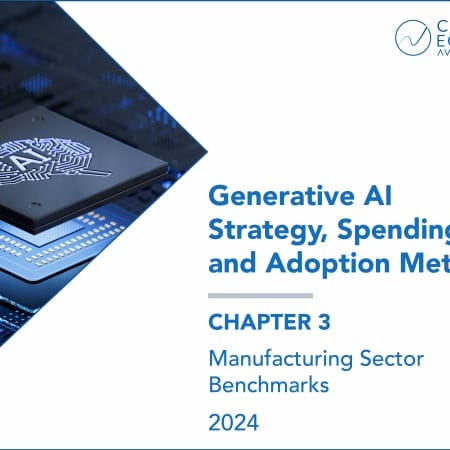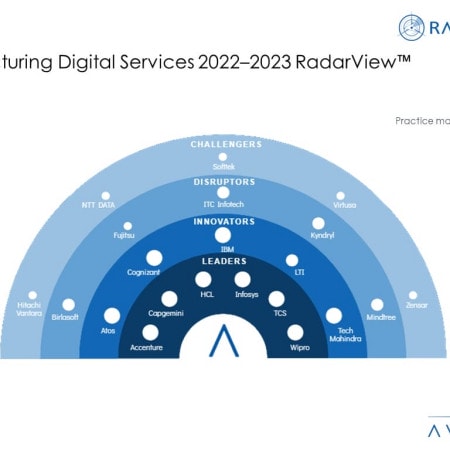-

Generative AI Strategy, Spending, and Adoption Metrics 2024: Chapter 3: Manufacturing Sector Benchmarks
This chapter concentrates on the manufacturing sector. It features a sample of 32 manufacturers including both process and discrete manufacturing.This chapter provides generative AI metrics for the manufacturing sector. It features a sample of 32 manufacturers including both process and discrete manufacturing. Among the sample are those that manufacture food and beverages, life sciences and pharmaceuticals, cars and car parts, industrial equipment, chemicals, and consumer goods. It includes metrics on how much enterprises are spending on generative AI, where they are spending it, and how they are governing it.
December, 2023
-

IT Spending and Staffing Benchmarks 2024/2025: Chapter 4: Process Manufacturing
Chapter 4 provides benchmarks for process manufacturers. Process manufacturers are defined as those where the production process adds value by mixing, separating, forming, or chemical reaction. This sector includes manufacturers of chemicals, petrochemicals, semiconductors, pharmaceuticals, dietary supplements, food and beverage products, cosmetics, building materials, packaging materials, steel, glass, paper products, and other process-manufactured goods. The 96 respondents in the sample range in size from a minimum of about $50 million to a maximum of around $70 billion in annual revenue
September, 2024
-

IT Spending and Staffing Benchmarks 2024/2025: Chapter 5: Discrete Manufacturing
Chapter 5 provides benchmarks for discrete manufacturing organizations. Discrete manufacturers are defined as those where the production process adds value by fabricating or assembling individual (discrete) unit production. This category includes manufacturers of consumer products, athletic equipment, industrial equipment, telecommunications equipment, aerospace products, furniture, auto parts, electrical parts, medical devices, and electronic devices, among other products. The 79 respondents in this sample range in size from a minimum of about $50 million to over $300 billion in annual revenue.
September, 2024
-

Manufacturing Digital Services 2022–2023 RadarView™
The Manufacturing Digital Services 2022–2023 RadarView™ can help enterprises craft a robust strategy based on industry outlook, best practices, and digital transformation. The report can also aid them in identifying the right partners and service providers to accelerate their digital transformation. The 92-page report also highlights top market trends in the manufacturing digital services space and Avasant’s viewpoint.
November, 2022
-

Transforming Manufacturing Operations Through Digitization
Manufacturers are under pressure to meet growing customer expectations despite increased production costs, a shortage of skilled workers, and the need to make new investments for Industry 4.0. To alleviate this pressure, they are investing in digital technologies to cut costs, shorten development cycles, reduce human dependency, mitigate risks from supply chain disruptions, and move toward sustainability. They are also working to diversify their business models and increase profitability. As this requires a strong integration of domain and technological expertise, manufacturers are collaborating with service providers for digital transformation. These emerging trends are covered in Avasant’s Manufacturing Digital Services 2022–2023 RadarView™.
November, 2022

 Grid View
Grid View List View
List View